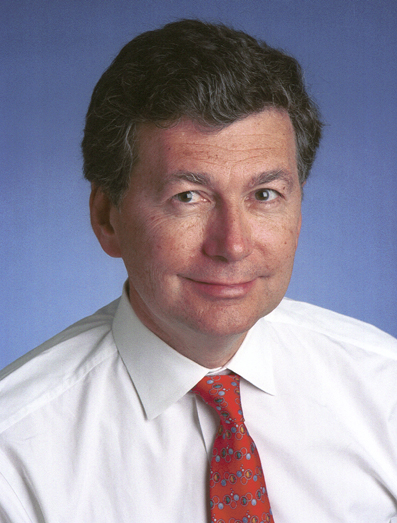On net neutrality, Reed Hundt speaks truth to power


That's former FCC chair Reed Hundt. I think he looks a bit like Dr. McCoy from the original "Star Trek."
But to the subject at hand. Ever wish you could be in two places at once? Last week was one of those times for me.
I was at the CTIA conference, blogging about mobile VoIP, some cool new mobile applications, and even listening in on a couple of conversations I wasn't supposed to hear. And blogging about them, too.
My ZDNet blogger colleague Dana Blankenhorn was- as we Westerners call it- "Back East," attending the Freedom2Connect conference just outside Washington, D.C.
I wish I could have been there. But until we perfect either the "Star Trek" transporter or cloning, I could not have.
But there's the next best thing:
On his own blog, Dana has posted transcripts of several presentations. One of them, from former FCC chair Reed Hundt, who gave his take on the imperatives of net neutrality.
As I titled this post, Hundt speaks truth to power.
Here, in my judgement, is the core of his argument:
Access builders are not the proprietors of the Web, or the creators of the Web. They are just creators of pathways.
The debate we ought to have is this. From the perspective of the right national goal do we want low cost very robust high speed access to this public property or a very expensive limited toll booth?
Access builders say it’s private property, and they can charge high prices to the public park of the Internet. And maybe I should make it less appealing to participate in the public commons and more appealing to particiapte in the private commons I will create. It’s a less robust version of the public property and more robust version of the private property.
It’s the same debate happening everywhere else. The only thing that is a little surprising is the astonishing abandonment of the field of discourse by the institutions you would have thought should talk about these things.
How can the FCC be empowered when a House subcommittee says you should pass no rules?
All the rules we wrote about telecomm in the 1990s were shorter, in the aggregate, than the rules of Little League Baseball. They were criticized in great volume, but the words did emerge and they were sustained in the Supreme Court. They were sustained but aren’t advocated any longer.
The rules and process were meant to empower users, to create a user-centric network where start-ups were subsidized by things like reciprical compensation, and the Internet was placed under the jurisdiction of common carriers.
To the 1990s libertarians, well, God bless your naïve judgement. I forgive you for knowing what you did not know but I don’t forgive you for not knowing those paradigms existed and were important.
Harvard Business School found a 10% rate of return of all the dot-coms for the 1990s. That’s not too bad. That’s better than any service provider record in that time.
The open net created by regulation and adjudicatory decisions was a revolution in society and a huge contributor to economic growth and rising wages.
We have things now going in the other direction.
Sheesh, man, have we ever. To paraphrase, Crosby, Stills, Nash & Young, it appears to be a long...time before the dawn.
For the future of the Internet, I hope it isn't, though.